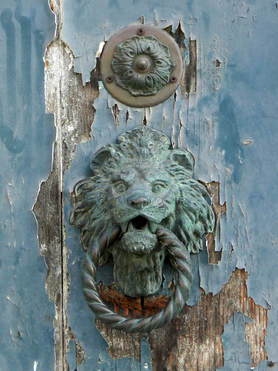 What do we do with deep questions? While similar to last week's Trading Theological Certainty for Freedom, rather than inviting us to ask the questions, I want to consider what to do once a difficult question is voiced. Why? Unfortunately we're masters at offering too simplistic of answers and explanations whether in conversation or from the pulpit. Instead, let's keep a few things in mind and heart: Be wary of easy answers. Whether you are on the giving or receiving end, an easy answer is often not a gift. Writes poet-philosopher David Whyte in his poem Tobar Phadraic, "Be impatient with easy explanations..." Indeed! Have you ever cringed, felt a shot of anger or been further weighed down when you've read or been offered an easy explanation? You may have wanted to shout, "What I'm wrestling with isn't that easy, if you can't do better than that, don't say anything at all!" If tempted to give an easy answer in response to a person's painful situation or deep question, bite your tongue (especially if it's getting ready to spout "spiritual" words) and offer your simple presence instead! And if said person longs for you to give them an answer, let Rich Mullins' song lyric from Playing Hard to Get be your guide, "And I know it would not hurt any less, even if it could be explained." Live the questions. Jesus put it this way, "Ask and it will be given to you; seek and you will find; knock and the door will be opened to you. For everyone who asks receives; the one who seeks finds; and to the one who knocks, the door will be opened" (Matt. 7) He just doesn't tell us when or how. So we're to continue to ask, seek and knock. Rainer Maria Rilke put it this way, "I would like to beg you dear Sir, as well as I can, to have patience with everything unresolved in your heart and to try to love the questions themselves as if they were locked rooms or books written in a very foreign language. Don’t search for the answers, which could not be given to you now, because you would not be able to live them. And the point is to live everything. Live the questions now. Perhaps then, someday far in the future, you will gradually, without even noticing it, live your way into the answer." You can read even more in his 1908, Letters to a Young Poet. Engage the imagination, body, intuition and other people. You live the questions by living them with your whole self in the whole of life. This is not some mind game or exam you'll be quizzed on later with a passing or failing grade (though there's bad theology out there that resembles such!). Listen to your dreams, both the daytime bidden and the nighttime unbidden. Your body has something to say to your questions, why not listen? You know those inklings, suspicions, gut feelings and hunches? Don't toss them out, they, too are valuable companions. And find at least one safe person, whether a spiritual director, close friend or family member, to engage in soul-shaping conversation. Saint Basil of Caesarea once wrote, "God the Creator has arranged things so that we need each other." In other words, we do not have to ask, seek, and knock alone. I hope you weren't expecting a black and white explanation of how to respond to deep (and rarely black & white) questions! Whether you are asking or listening to the question, may you enter in with your whole self finding the question or difficult situation a doorway leading deeper into the transforming, life-giving Mystery.
Comments are closed.
|
AuthorKasey is a scarf, ball and club juggling spiritual director just outside of Nashville, TN. Play helps her Type-A, Enneagram 1 personality relax, creating space for poetry and other words to emerge. She also likes playing with theological ideas like perichoresis, and all the ways we're invited into this Triune dance. Archives
September 2023
Categories
All
|
By clicking “Sign up for E-News” I consent to the collection and secure storage of this data as described in the Privacy Policy. The information provided on this form will be used to provide me with updates and marketing. I understand that I may modify or delete my data at any time.

 RSS Feed
RSS Feed

